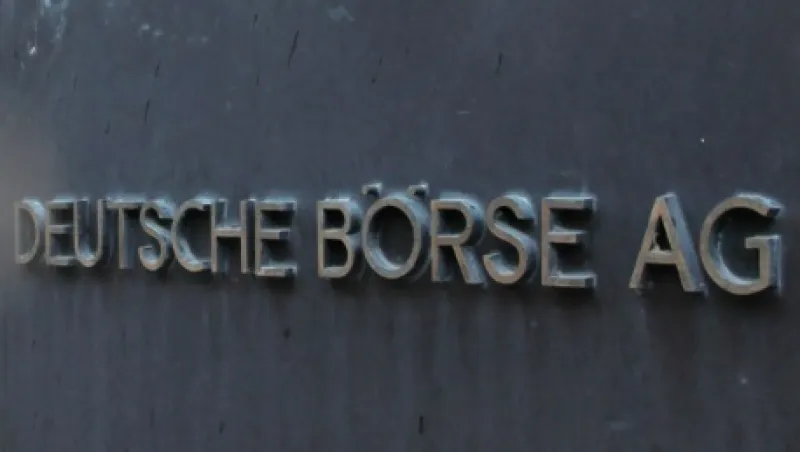The biggest argument of the Remain camp in the U.K.’s recent referendum was the risk of uncertainty if voters opted to exit from the European Union. Not knowing what access the U.K. would have to the EU’s single market could depress investment and trigger a recession in the U.K., warned numerous economists and even the chancellor of the Exchequer, George Osborne.
Now that Britain is grappling with the consequences of the Brexit vote, uncertainty has smacked executives at the London Stock Exchange Group and Deutsche Börse in the face. Europe’s two leading exchange operators are pressing ahead with their proposed $30 billion merger even though the referendum result poses a huge and uncertain political risk to the deal’s completion.
The two sides took a significant step forward on Monday when shareholders of the LSE voted overwhelmingly to endorse the deal at an extraordinary shareholder meeting in London.
The Brexit vote did not change the underlying logic of creating a European exchange powerhouse with dominant franchises in everything from cash equities trading to derivatives to clearing and settlement to stock indexing, says Gregor Pottmeyer, chief financial officer of Deutsche Börse. The two companies still expect to deliver cost savings and revenue synergies worth a combined €700 million ($780 million) a year after five years.
“It makes sense from a strategic point of view,” says Pottmeyer. “It makes sense from an economic point of view.” And if Brexit goes ahead, the merged group will retain a strong presence both inside the EU and outside. “It’s a perfect hedge,” he adds.
The market certainly doesn’t seem to have given up on the deal. The LSE’s share price got hammered, dropping 16.3 percent in the first two days after the referendum, but it has recovered to stand only 7.8 percent lower at £25.23 ($33.47) on July 1. Deutsche Börse’s stock took less of a hit initially but enjoyed less of a bounce; they closed at €73.19 on July 1, down 10.4 percent from the day of the referendum. The relative price shift is too small to affect the financial terms of the deal, Pottmeyer asserts.
“It’s a mid- to long-term strategy we have,” he says. “This reaction of the capital market does not change anything.”
All of which leaves the not so small matter of politics. The biggest blow came last week when the head of the German financial regulator BaFin, Felix Hufeld, said London couldn’t be the headquarters of the combined business if Britain leaves the EU. Deutsche Börse had agreed to a London headquarters to appease some of the nationalist sentiment that had torpedoed a previous takeover attempt.
“It is hard to imagine that the most important exchange venue in the euro zone would be steered from a headquarters outside the EU,” Hufeld said. “There certainly has to be an adjustment here.”
The two companies have appointed a six-person referendum committee to address the headquarters and other political issues stemming from the Brexit vote, but it won’t have anything to say before the July 12 deadline for Deutsche Börse shareholders to respond to the tender offer under the deal. They are expected to embrace the deal as well, leaving one big regulatory hurdle outstanding — the need to win approval from EU competition authorities, a process that is expected to drag on into early 2017.
Pottmeyer is deliberately vague about when the committee might come up with proposals to deal with the referendum result, saying only that “we are in a dialogue with the London Stock Exchange and we try to find solutions.”
Which is pretty much all anyone can say at this point. As unexpected as the referendum result was in financial circles, the political fallout has been even more chaotic. Boris Johnson, the former London mayor who led the Brexit campaign, withdrew from the race to succeed David Cameron as Conservative Party leader and prime minister after he was attacked by his fellow Leave campaigner, Michael Gove. The current favorite, Theresa May, says she doesn’t want to trigger Article 50 of the EU Treaty and begin exit negotiations until 2017. The opposition Labour Party is in just as much disarray as the Tories as the vast majority of Labour members of Parliament have voted against leader Jeremy Corbyn for his lackluster campaigning ahead of the referendum. The U.K., in short, is politically rudderless at a time when it needs to take its biggest political decisions in more than 40 years.
All of which leaves LSE and Deutsche Börse shareholders looking a lot like British voters. They are being asked to render a verdict on a transformative proposal without any real idea whether or when it will actually be carried out.
This file was updated on July 5 to reflect the LSE shareholder vote.






